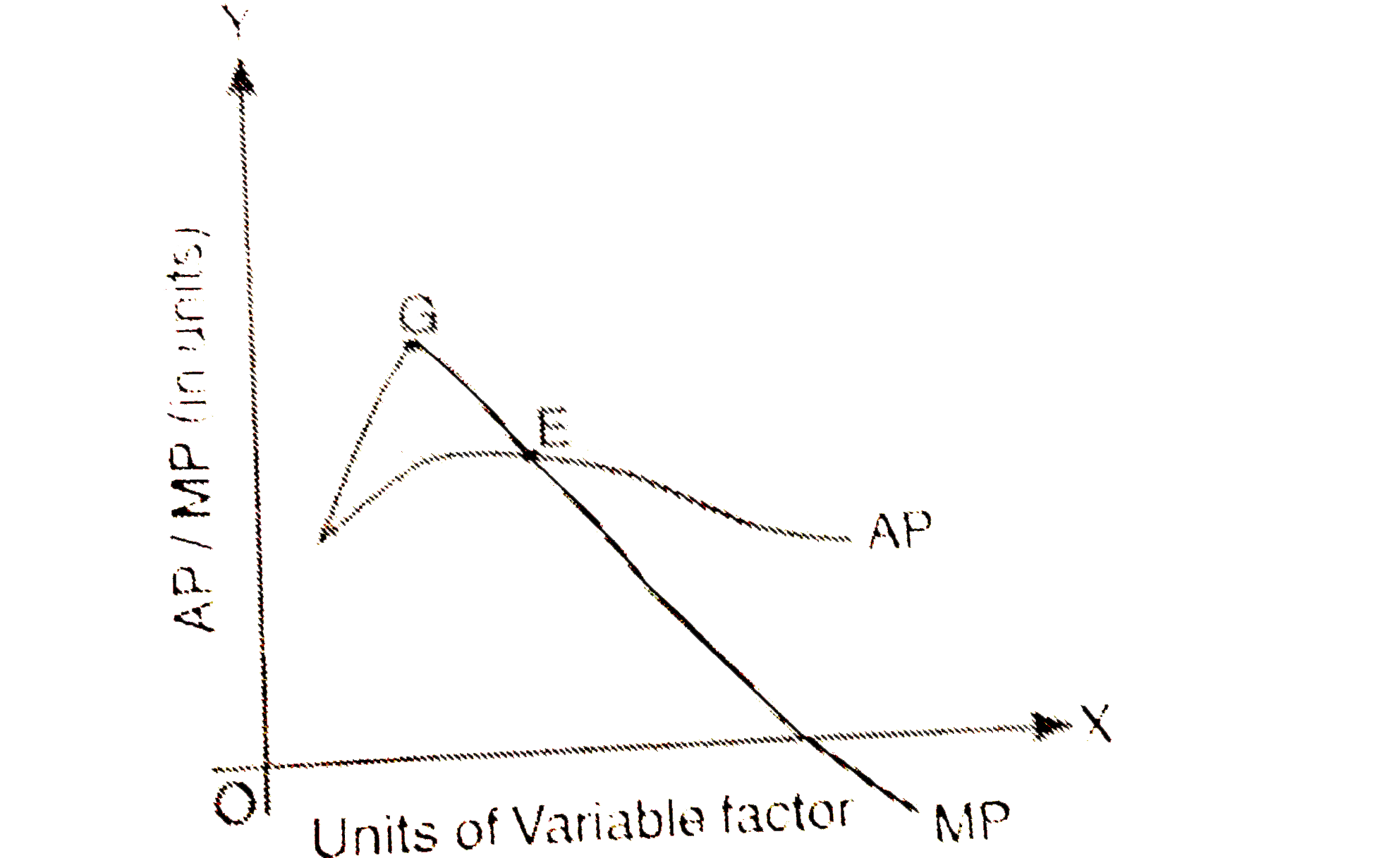Rising average product is possible only when MP is more than AP.
Text Solution
True. When MP is more than AP, MP pulls AP up. So, rising AP is possible only when MP>AP, i.e. before point E in Fig. 5.5

|
Topper's Solved these Questions
- PRODUCTION FUNCTIONBOOK - SANDEEP GARGCHAPTER - PRODUCTION FUNCTIONEXERCISE - GUIDELINES TO NCERT QUESTIONS
14 Videos
- PRODUCTION FUNCTIONBOOK - SANDEEP GARGCHAPTER - PRODUCTION FUNCTIONEXERCISE - Very Short Answer Type Question
25 Videos
- PRODUCTION FUNCTIONBOOK - SANDEEP GARGCHAPTER - PRODUCTION FUNCTIONEXERCISE - HOTS
9 Videos
- PRODUCER'S EQUILIBRIUMBOOK - SANDEEP GARGCHAPTER - PRODUCER'S EQUILIBRIUMEXERCISE - Unsolved Practicals
12 Videos
- REVENUE BOOK - SANDEEP GARGCHAPTER - REVENUE EXERCISE - UNSOLVED PRACTICALS
21 Videos
Similar Questions
Knowledge Check
What happens to AP, when MP is more than AP ?
AAP risesBAP fallsCAP remains constantDNone of theseSo long as Average Product is rising :
AMarginal product is also risingBMarginal product is greater than average productCAverage product is greater than marginal productDMarginal product is less than average productWhen average product of an input is at its maximum then
(AP = Average product)
(MP = Marginal Product )
जब किसी निवेश का औसत उत्पाद अपने अधिकतम पर हो, तो
(औसत उत्पाद)
(सीमांत उत्पाद)AAP=0BAP=MPCAP>MPDAP<MP
When average product is maximum, marginal product is greater than average product.
View SolutionWhat is the reaction of AP, when, (i) MP is more than AP, (ii) MP is less than AP, (iii) MP is equal to AP ?
View SolutionAverage Product falls only when marginal product is less than average product.
View SolutionAverage cost will rise only when marginal cost rises.
View SolutionAverage product will increase only when marginal product increases.
OR
Average product rises only where marginal product rises.
View Solution
